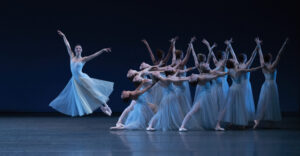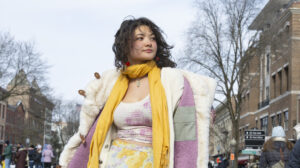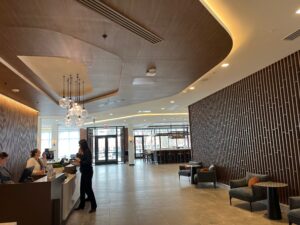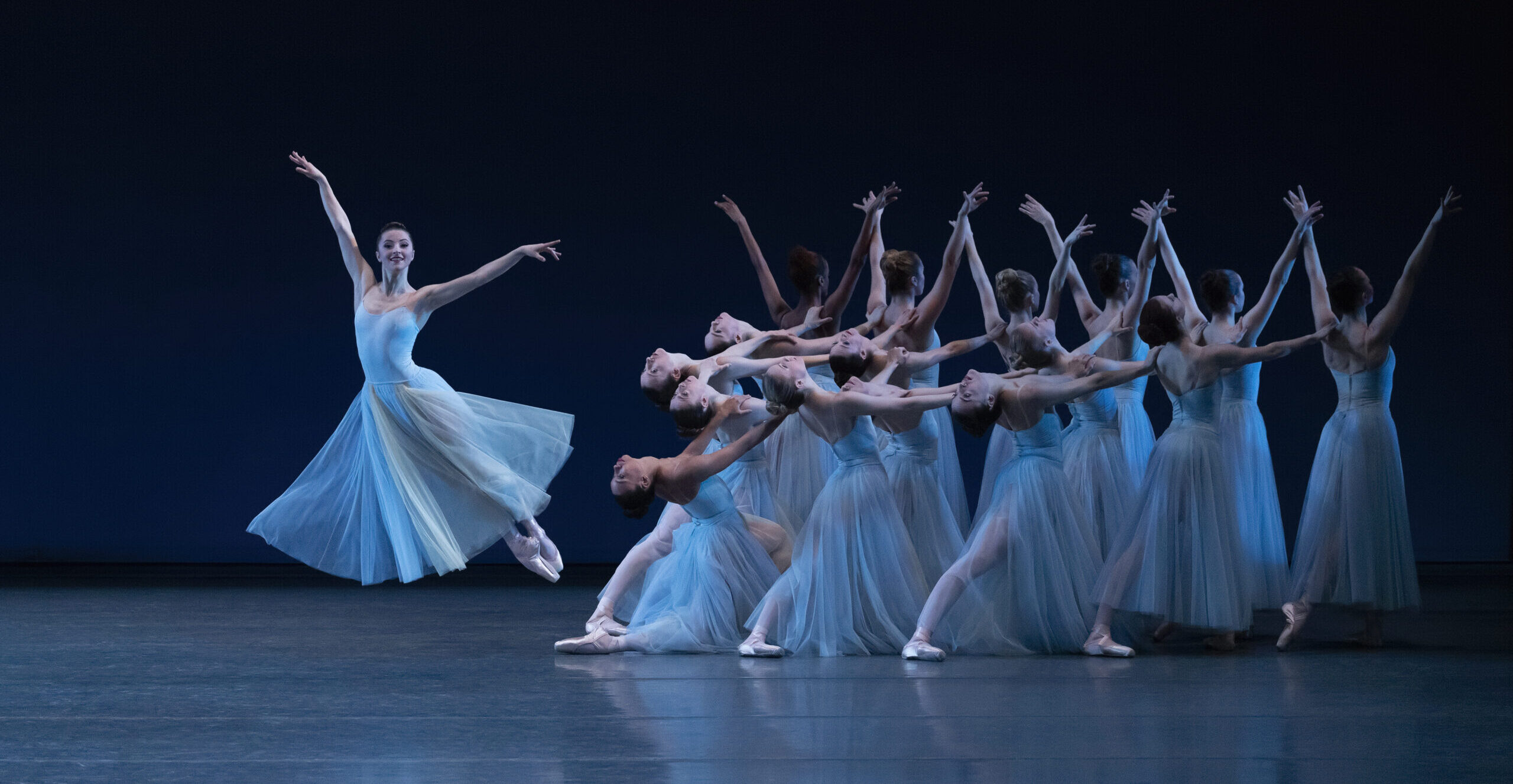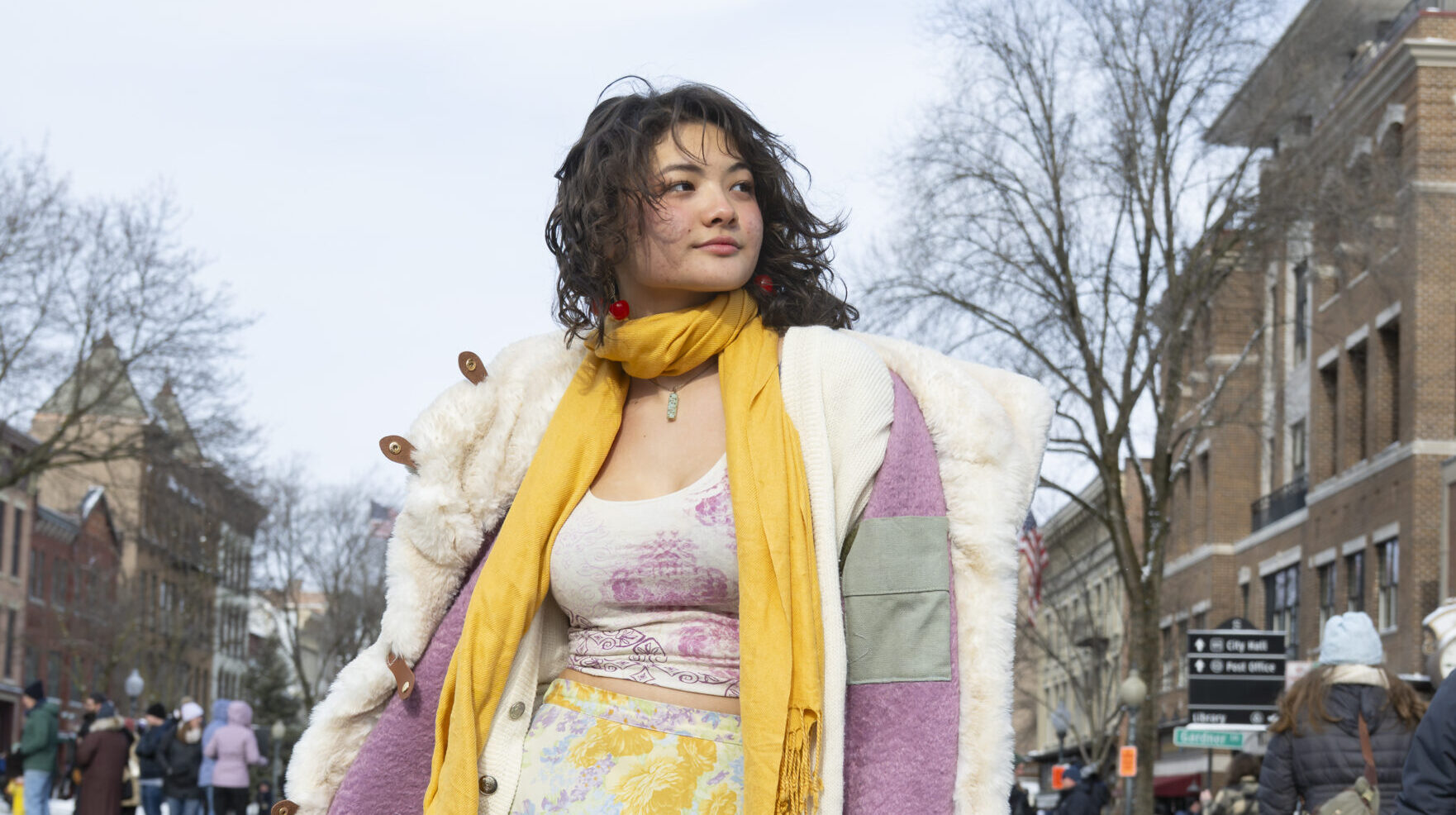My mother, Tina Levith, is one of the most caring, personable people you’ll ever meet. That’s what made her the perfect fit for a job working with students at Skidmore College in the Dean of Studies Office in the early 1990s. Though I know the job weighed on her at times, she ultimately loved it and was constantly befriending talented students around campus. When I was a teenager, I remember her excitedly telling me about this one student, Garland Nelson, who had a larger-than-life personality and a beautiful singing voice. He was one of the college’s rising stars. Now long since retired, she recently told me that whenever she runs into him in Downtown Saratoga, he gives her a big hug. That should tell you everything you need to know about him; he’s still the same effervescent person my mom met all those years ago—and he’s never forgotten the people who helped shape him into the man he is today. As the leader of Saratoga band Soul Session—and an all-around musical polyglot—Nelson’s one of the area’s most successful and sought-after musicians.
But it wasn’t such an easy road getting there. Born and raised in the projects in Bedford-Stuyvesant, Brooklyn—the same neighborhood that spawned hip-hop giants such as The Notorious B.I.G. and Jay-Z—Nelson tells me that a career in music wasn’t really in the cards for him early on. “You’d be surprised to know that none of the members of my family were musicians,” he says. His path to music was actually paved by his uncle, who had a turntable and a massive record collection. He remembers rifling through his uncle’s stacks of LPs on the floor as a young child, marveling at the colorful album covers, listening to the music and mimicking everything he heard. His uncle was a funk connoisseur, a fan of groups such as B.T. Express, The Commodores, and especially, Earth, Wind & Fire. Nelson can actually pinpoint the song he first sang along with on a loop: “Sun Goddess,” from the eponymous 1974 Ramsey Lewis/Earth, Wind & Fire collaboration album, which features the type of album cover that would mesmerize a curious child: It shows a woman’s face—eyes closed, lips pursed—painted in glittery gold, with golden rays emanating from it. “I used to take it out of the sleeve and put it on his wooden floor and spin it,” says Nelson. “Needless to say, my uncle went through quite a couple of copies of that album.”
By the 1980s, Nelson was at Washington Irving High School in Manhattan “trying not to be a statistic,” with the mean streets in full effect. “Fortunately for me I had a very strong mother and grandparents that were like, ‘We will not only whup your ass, but we’ll throw your ass out on the street if you don’t keep it moving,’” he says. “I was able, by God’s grace, to keep it moving enough to finally catch fire.” By that he means that his grades started improving, and he actually began believing that there was a future for him outside of the city. By senior year, he was looking at a range of colleges and universities—some historically black and others, such as Marist College and Temple University—when his advisor suggested he check out Skidmore (a friend of Nelson’s, one year ahead of him, had gone there to study dance). Nelson remembers thinking “Skid Row College” at first. “It just didn’t compute,” he says. “Skidmore was absolutely not even on the radar whatsoever.” So he traveled up to Saratoga to check it out, and something clicked. “Something about the environment coinciding with my Black Pantherism at the time made me want to see how the other side lives,” says Nelson. “It just felt so welcoming, across the board, not only from other students of color, but also the faculty, who seemed like regular people, New York City-style; there was no pretentiousness or hierarchical kind of thing.” After a second trip to the college, everything fell into place. Unexpectedly, he felt strangely at home.
Nelson says he really enjoyed his first two years at Skidmore. “I was one of those guys who did 40 million things,” he says. He did his best work, academically, during those years and was an RA his sophomore year, a rarity for an underclassman on campus. He made fast friends with two brothers who were star players on the Skidmore College Men’s Basketball team, and he says his room was a constant hip-hop dance party. “But year three was the first one where it was like, ‘I don’t feel like I belong here anymore,’” says Nelson. He was getting closer to graduating, and it began to dawn on him that his future could easily be going back to living in the ’hood with his mom. Also, being the first person from his family to go away to college, he had no one to talk to about what post-graduate life looked or felt like. He was lost.

What saved him was music. He DJ-ed at the college radio station—and spun records in the Downtown Saratoga scene too, at now long-closed venues such as The Trattoria, Golden Grill and The Metro. After graduation, Nelson moved Downtown, living in a studio apartment above Impressions of Saratoga. The way he looked at it, he was just buying time in order to get to the next step of his life. He was singing a lot too. “All of a sudden, music came screaming back into my life,” he says. He decided to go to an open mic night at the newly opened Bailey’s, which was run by local musicians Rick Bolton and Jeff Walton. Again, an epiphany. “It was those open-mic environments with these key people—they took me in and put their arms around me, and that gave me an opportunity to learn from people actively doing it,” he says. That turned out to be his ticket to success on the local music scene—and for a minute, the national stage. In 1999, Nelson won an early American Idol-type karaoke competition and was named the top singer in all of New York State. He was flown down to Nashville to compete in a national sing-off championship. He didn’t win, but it provided him with a big takeaway: that there had been tons of talented people there at the competition, all of whom were hungry for success—and just “being who they really were.” That was the turning point for him. He came back to Saratoga with a purpose: He was going to go all-in on being a professional musician. He auditioned for and landed a slot in a relatively new local nine-piece band called the New York Players, and within a year, they were the most sought-after act within a three-hour radius of their home base in Albany. And he was their frontman.
Fast-forward to 2003, and Nelson got the itch to break out on his own. That’s when he founded Soul Session, a project that started as a soul singer-fronted acoustic outfit and morphed from there. The band has since opened for Boyz II Men, Rock and Roll Hall of Famer Bootsy Collins (of Parliament-Funkadelic) and even ’70s/’80s hit machine Eddie Money. “It was the weirdest pairing,” says Nelson of the latter gig. “That was one thing we didn’t listen to in the ’hood.” Soul Session has become a mainstay on the fundraising and wedding circuits in Saratoga and the greater Capital Region—they played the American Cancer Society’s Gala of Hope in May and are gearing up to play the Saratoga Performing Arts Center’s Ballet Gala on July 21. While some local bands might not think twice about their audience at a fundraiser or wedding, Nelson says he takes every single gig “deathly serious.” Here’s how he puts it: “When people come to me and ask for my leadership to deliver one of maybe two or three greatest moments of their existence, outside of children, that’s pressure like a motherf—. There’s no other way for me to put it.” Taking that a step further, he says that each client comes away knowing that his band will be at their function to “blow sh— up.” In other words, he’ll bring them nothing short of his all. Turning it around, he asks, rhetorically, “What would I want?”
Most bands don’t have much of a story behind how they got their name. Even die-hard fans have to admit that “The Beatles” is a pretty lame name for a band. Soul Session, on the other hand, is anything but a throwaway. Nelson says the word “soul” came to him in the context of the Bible: “God breathed into man the breath of life, and he became a living soul,” he says, paraphrasing the passage from Genesis. The other half, “session,” is less a synonym for what a musician does in a recording studio than it is about providing therapy to the audience. “This was literally downloaded into me,” says Nelson. “It wasn’t a matter of us to you; it was more like us being in a circle, and everyone in it having just as much importance as the person who was leading the discussion.” Nelson provides a powerful example of that ethos: He once received a letter from a fan who’d been at one of his shows that said, had he or she not been caught up in Nelson’s energy, they would’ve probably ended their life that night. That’s the kind of power few of us get to wield or harness during our lifetime. And it brings us back full circle to that young, impressionable college student, full of dreams and aspirations, who left the big city for a small school in a small town—and wound up, years later, owning it.
The next time I run into Garland Nelson in Downtown Saratoga—and I know I will—I’ll be sure to give him a big hug back.










